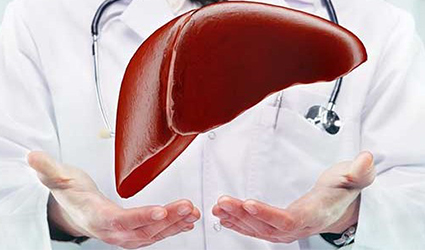NAFLD Aggravated by Even Modest Alcohol Use
August 7, 2018
Source: MDEdge
 919
919

A longitudinal cohort study published in the Clinical Gastroenterology and Hepatology revealed that non-alcoholic fatty liver disease (NAFLD) patients who consumed modest amounts of alcohol had notably low improvement in steatosis and significantly lower chances of recovery of non-alcoholic steatohepatitis (NASH), contrasted with non-drinkers.
Modest drinkers also showed less of a rise in their AST levels, compared with non-drinkers, said Veeral Ajmera, MD, of the University of California, San Diego, and his associates. “Importantly, our results suggest that cessation of alcohol use may mitigate these changes,” they wrote. Clinicians should think of the spectrum of NAFLD, and especially NASH when advising about alcohol use. “More advanced NAFLD severity may warrant counseling against [even] modest alcohol use.”
There were 285 women, white, and obese, in their late 40s with an average body mass index of 34.7 kg/m2 included. Overall, 59% consumed up to two drinks every day, whereas 41% did not consume alcohol. Considering an average of 47 months between biopsies, non-drinkers showed 0.49 reduction in steatosis grade on an average, significantly higher than that of modest drinkers. Non-drinkers also showed a sharper decline in mean AST levels (7 U/L), contrasted with drinkers (2 U/L).
On controlling for the possible contributing factors, modest drinkers had remarkably lower chances of NASH resolution, compared to non-drinkers.
“[The] presence of NASH has consistently been shown to predict increased risk for fibrosis progression, and therefore, our finding of less NASH resolution among consistent modest drinkers is clinically relevant,” the investigators noted. “Although we were unable to assess the association between modest alcohol consumption and cardiovascular risk, we did not see any significant changes in measured metabolic risk factors with known associations with cardiovascular disease including low-density lipoprotein and high-density lipoprotein cholesterol and insulin resistance.”
By DduRead more on
- Things to Know before Buying Newborn Baby Incubators March 31, 2022
- Highly Resistant Food Poisoning Bug Responds to Antibiotics September 6, 2018
- Smartphone Based Diagnosis to Identify Mosquitoes Transmitting Infection September 5, 2018
- 3 Natural Plant Extracts Manufacturers on Drugdu.com September 4, 2018
- Shenzhen Chuanggan – Health Assessment Facility Supplier September 4, 2018
your submission has already been received.
OK
Subscribe
Please enter a valid Email address!
Submit
The most relevant industry news & insight will be sent to you every two weeks.



